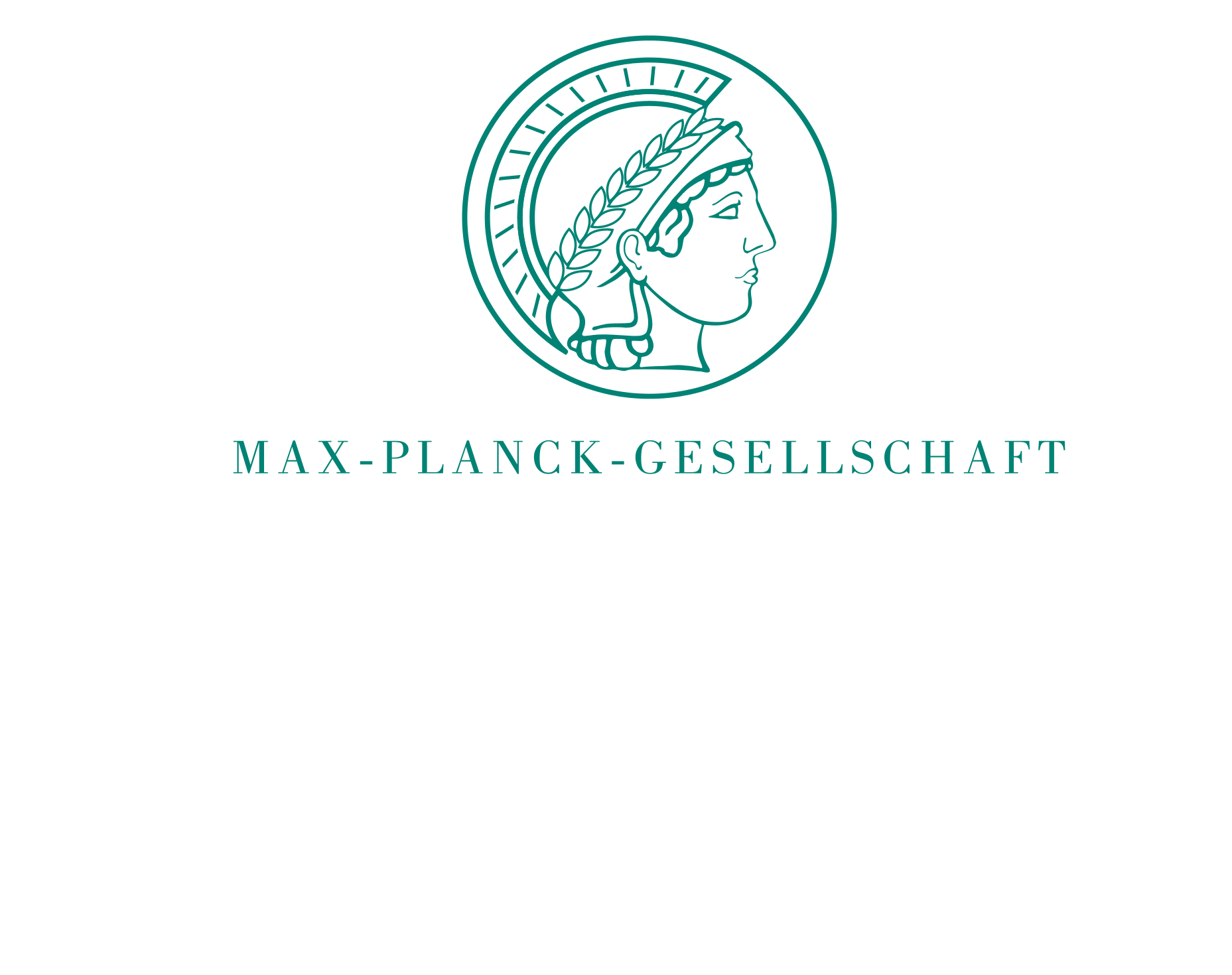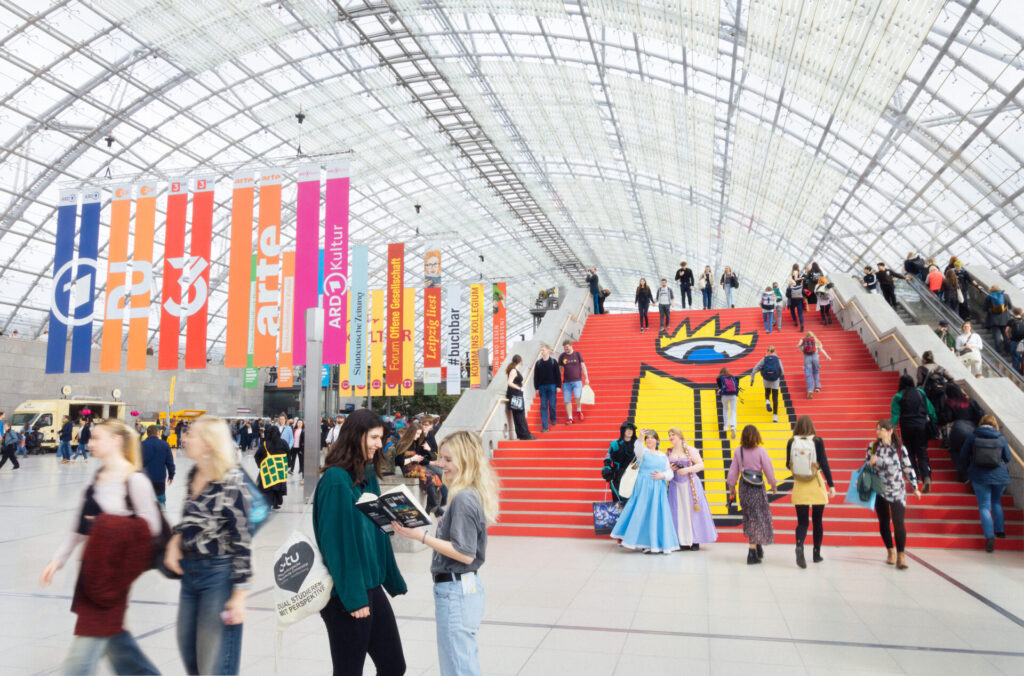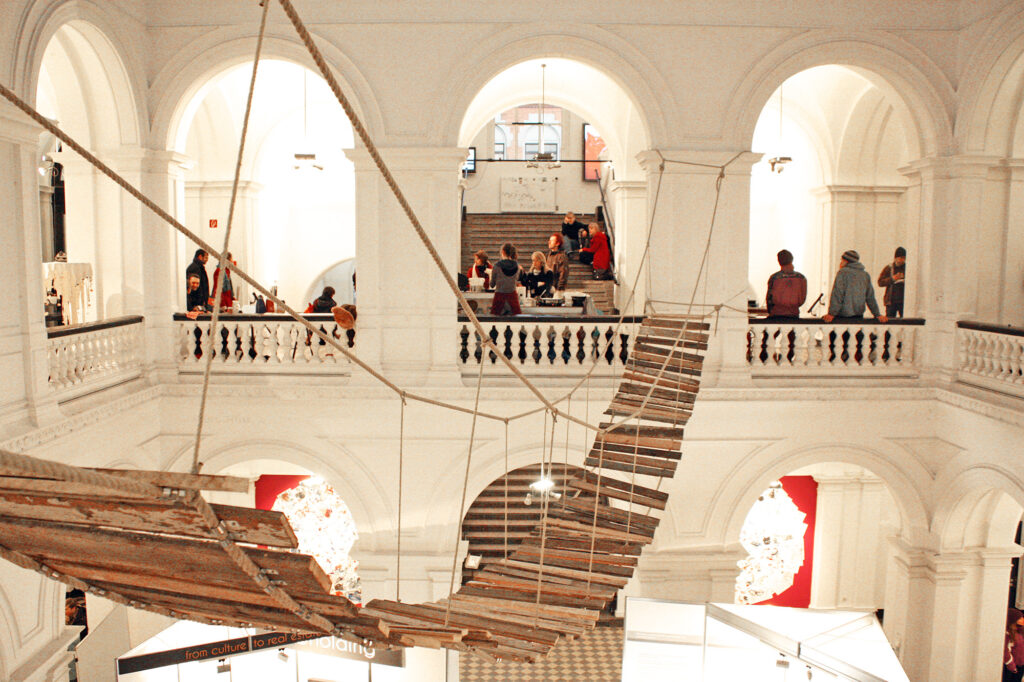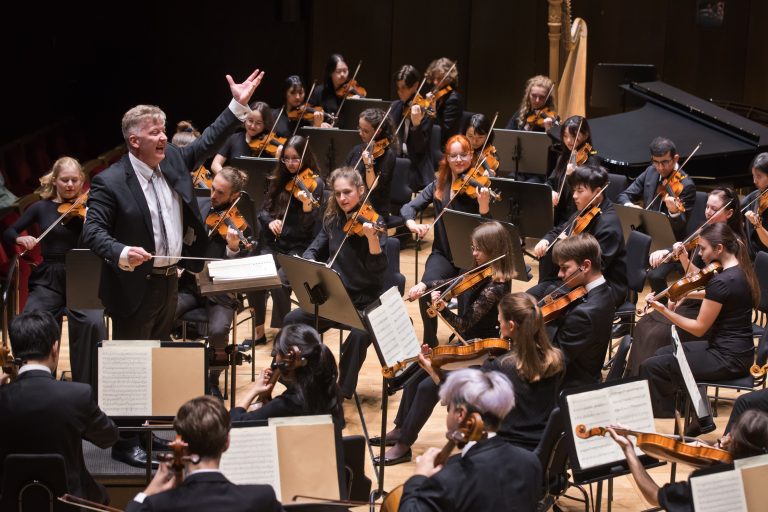WELCOME TO LEIPZIG
A guide for international scientists
and guest researchers
About our project
You are currently viewing a placeholder content from YouTube. To access the actual content, click the button below. Please note that doing so will share data with third-party providers.
The Welcome to Leipzig project aims to improve the structures for welcoming international guest researchers and highly qualified employees from all over the world and to simplify bureaucratic hurdles in the process of their arrival in Leipzig. In the gap where human resource departments and international offices cannot offer comprehensive individual support and advice, Welcome to Leipzig will provide additional support, information and contacts.
Within the project, launched in 2014, we have collected essential information about organizing a research stay in Leipzig for international researchers. Existing structures, including research institutions, authorities and the municipal government, have been consolidated to form a network together. New players are constantly joining the project, in turn enriching the network and facilitating access for international guests coming to the City of Leipzig.
The institutional partners in the Welcome to Leipzig project are Leipzig Science Network e.V., Leipzig University, the City of Leipzig, the Helmholtz Centre for Environmental Research (UFZ), the Max Planck Institutes for Mathematics in the Sciences (MPI-MIS), for Evolutionary Anthropology (MPI-EVA) and for Human Cognitive and Brain Sciences (MPI-CBS), the German Centre for Integrative Biodiversity Research (iDiv), the Leipzig University of Applied Sciences and the HHL Graduate School of Management. The project is funded by the Saxon State Ministry for Science and the Arts. The network has further partners, including authorities administered by the City of Leipzig and other stakeholders from the Free State of Saxony. This platform offers useful information and material developed within the project for potential users from all over the world.
Researching in Leipzig
Before your arrival
Do you need help preparing for your stay? Do you have any questions concerning working and living in Leipzig? We would be happy to provide you with further information about anything and everything to do with your stay: visa matters, accommodation, employment contracts, childcare and schools etc.
Your stay
Questions may arise while you are in Leipzig. To clarify uncertainties regarding public authorities, residence permits, registering with the City of Leipzig or your visa, we invite you to browse our detailed site.
Leaving Leipzig
How did you like your stay in Leipzig? Will you miss our beautiful city? We would love to hear about your experiences in Leipzig and to stay in touch. To help us improve our services, please give us some feedback and tell us what would have made your time in Leipzig easier. Here is what you need to remember when preparing to leave Leipzig.
OUR REGULAR ACTIVITIES
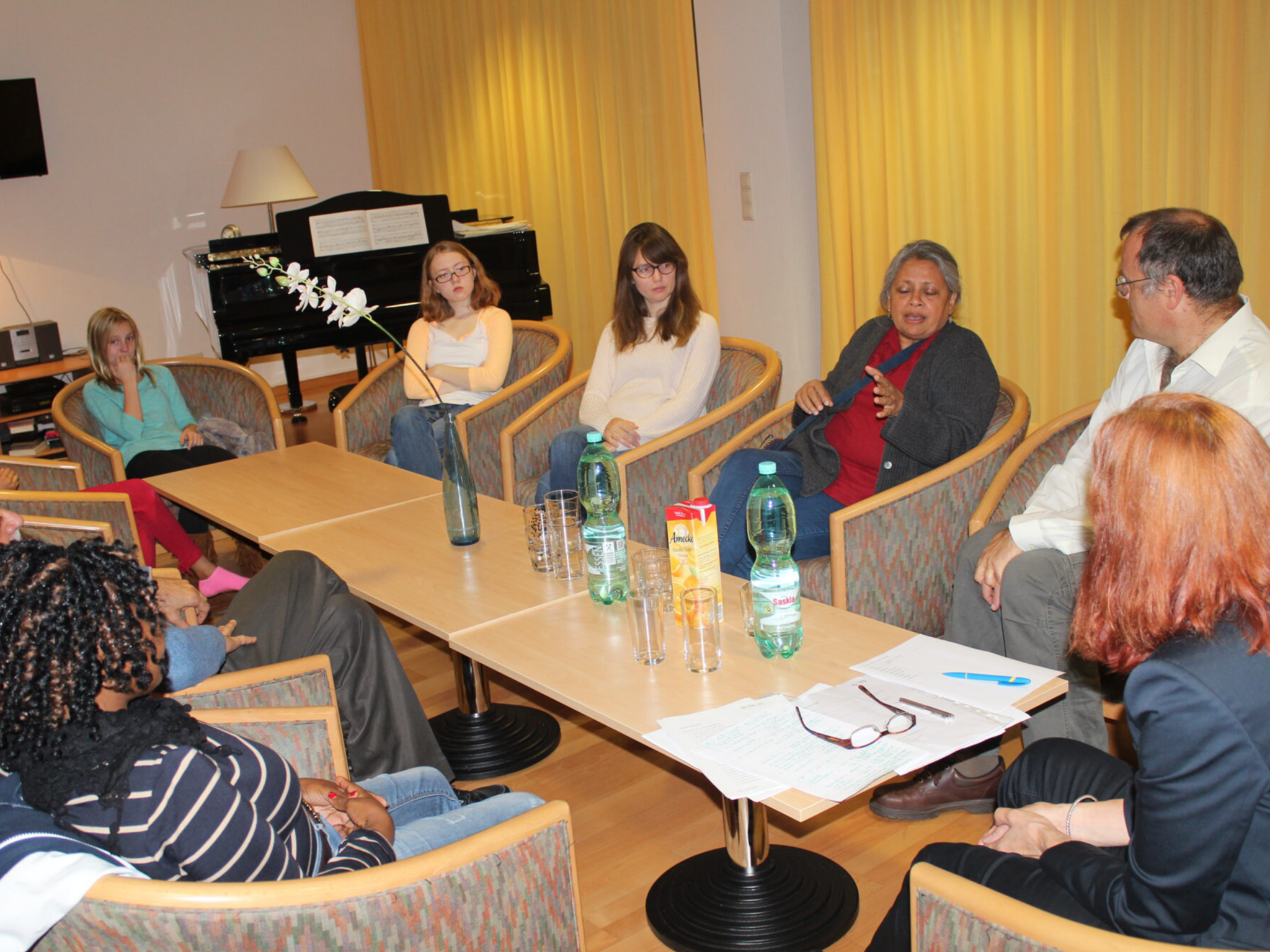
"Typically German" - Intercultural Trainings for Guest Researchers
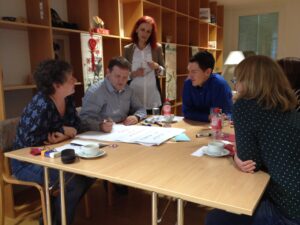
Intercultural trainings for German staff members of authorities and science administration
Employees of public authorities and research institutions get in contact with people from different cultural backgrounds every day. This is where misunderstandings may arise, not only because of the language barrier, but also because of the different cultural backgrounds of the interlocutors. Communication manners and strategies may vary from country to country. Find out more about our intercultural trainings.
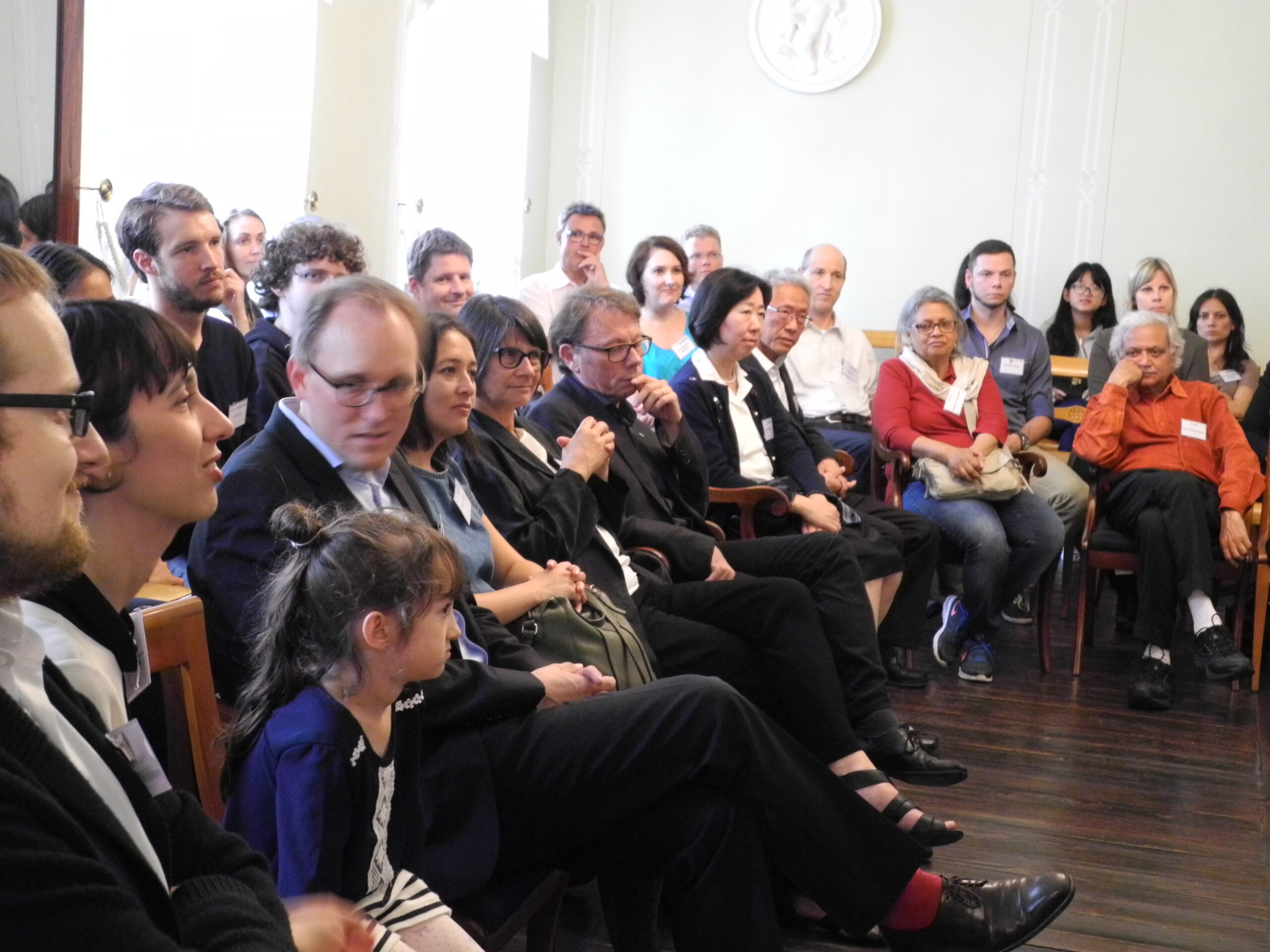
Intercultural events for all network partners
Once a year, all the different project partners gather together at an intercultural event. Guest researchers as well as the project coordinators from the different research institutions and representatives from the project partners are invited to explore an interesting spot in Leipzig’s cultural landscape. Learn more about our intercultural events.

"Typically German" - Intercultural Trainings for Guest Researchers
Why do Germans always talk about the weather? Why do Germans sometimes react so strangely? We address these questions in “Typically German”, our intercultural training event for guest researchers. An experienced intercultural trainer invites participants to become more familiar with the idiosyncrasies and pitfalls of communication in Germany.

Network Meetings
Once a year, the members of the network “Welcome to Leipzig” got together at the cultural centre “Moritzbastei”, the biggest student club in Europe in the heart of Leipzig. It is an opportunity for the different network partners to get to know each other and to get in touch with one another. During the meetings, the different stakeholders discuss about the recent developments in the project and how it is going to be continued in the future. Read more about our network meetings.
UPCOMING EVENTS FOR RESEARCHERS
March 2026 |
||||||
|---|---|---|---|---|---|---|
| Mon | Tue | Wed | Thu | Fri | Sat | Sun |
|
1
|
||||||
|
2
|
3
|
4
|
5
|
6
|
7
|
8
|
|
9
|
10
|
11
|
12
|
13
|
14
|
15
|
|
16
|
17
|
18
|
19
|
20
CITY OF LEIPZIGYOUR PLACE TO STAY
You are currently viewing a placeholder content from YouTube. To access the actual content, click the button below. Please note that doing so will share data with third-party providers. < Leipzig is a place where tradition meets modern culture, where the city centre is surrounded by plenty of lush parks, forests and rivers and where everybody can find a home in different neighbourhoods that serve every taste. The city has become more and more popular over the years. More and more people are moving here every year, and today it is the largest city in the federal state of Saxony, with a population of around 630,000. We are glad you have also chosen to come and discover this beautiful city! Leipzig has a very long and important history. Around 1000 years ago, the city was founded at the crossroads of two of the region’s most important trading routes. Today it is a dynamic economic and cultural metropolis at the heart of Central Germany. Leipzig is famous for two major churches in the city centre – the St. Thomas and St. Nicholas churches, each of which played a key role in Leipzig’s past, especially the latter for the reunification of Germany. Numerous museums chart the history of Leipzig and the GDR, allowing you to discover different aspects of Leipzig, for example Leipzig as a city of books or to just enjoy culture and art. Leipzig is famous for the many arcades in the city centre that make shopping a unique experience.Here you will enjoy a high quality of life, a relaxed and unconventional atmosphere, a family-friendly urban landscape, a well-organized public transport system and an affordable standard of living. The city can easily be explored on foot, by bike, using public transport or even from the waterways which criss-cross some areas, particularly in western Leipzig. It has an ideal size for a city: It is big enough to be able to offer everything you need in terms of culture, restaurants, leisure activities, sports, music, interesting buildings and places, open spaces, nature and diverse neighbourhoods that serve every taste. On the other hand, everything is within reach, no matter which neighbourhood you may choose to live in – what you need is just around the corner and you can get to the other side of the city in no more than half an hour. There are also plenty of hidden places worth exploring, some of which you can find at Hidden Leipzig. FREQUENTLY ASKED QUESTIONSWhen looking for housing ads I noticed the term “Kaltmiete”. What does it mean?Most housing ads give the “Kaltmiete”. The term cold rent or “Kaltmiete” refers to the cold components of the rent i.e. how much the landlord charges per square meter of living space. This portion of the rent corresponds to the size of your new flat and the condition it is in. For a newly renovated modern apartment with floor heating and new bathrooms, the cold rent might be higher than for a flat that still has very little insulation and an elderly heating system. The cold rent is pretty much fixed. If your landlord wants to raise it, he/she has to agree it with you (for instance by doing a “Staffelmiete”, a scheduled raise by a certain amount in fixed intervals). In Leipzig this is very rare. Cold rent can also be raised after thoroughly renovating the apartment. This is called “Modernisierung” or bringing a place up to modern standards. Your landlord has to inform you before commencing such works and the law defines how much of a raise a landlord can charge after modernizing a place. Is the cold rent what I pay to the landlord each month?Yes and no. Yes, you have to pay the agreed cold rent for the square footage. But the landlord not only provides the bare space. In addition to that, landlords also provide most of the basic utilities like heating, cold water, hot water, sewage, garbage disposal etc. For that you are charged additionally based on your actual consumption. Expect that a big chunk of money will be needed for those utility costs. And because your consumption can only be estimated before you consume the resources, what you pay in advance each month for utilities is just that: an estimate of the actual amount. This estimate is based on previous costs or former occupants or, if you have been living there for a while, based on your own behavior in the past. The riddle how much it really costs is only solved a lot later once you receive your utility bill for the previous year. Which utilities are included in the rent?Landlords often provide the basic utilities like heating, cold water, hot water, sewage, garbage disposal, lighting of staircases, janitorial services, insurance of the building, gardening work etc. The law exactly describes which of those utilities have to be borne by the landlord alone and which utilities can be billed to the tenant. For quite a few utilities you are charged based on your actual consumption which is metered (that is why you read the water meters and the meters on the heaters when you move in or out and once a year). Others like garbage removal or the services of a janitor are shared with the other tenants based on the size of your flat. Are there utilities that have to be paid in addition to the “warm” portion of the rent?Unfortunately, yes. You have to make your own contracts with utility providers whenever possible. This almost always is the case with cable television, internet, telephone and electricity. (If you live in a detached house of your own, you might also have to make private contracts for gas/oil, water, sewage, and garbage removal.) Friends told me it is not the “Kaltmiete” that I have to compare but the “Warmmiete”. What does it mean?The term “Warmmiete” refers to the entire rent including advance payments on your estimated use of utilities. The landlord provides certain utilities and bills you after the end of the year according to your usage and the actual costs occurring. Since prices vary as do the personal habits of tenants and the weather, the warm portion of the rent is highly flexible. When the utility bill arrives, it is sometimes a refund but quite often you might have to pay extra (for instance after a hard winter). That is why housing ads only give the cold rent. You have to ask the landlord how much the estimated utilities are. But take it with a grain of salt because it is really hard to guess. And, sadly enough, some landlords try to lure people in with a very “optimistic” estimate of the warm rent. I have finally found an apartment and am about to receive my keys. The landlord made an appointment for a walk-up. Is there anything to consider?Before you get the keys to your new place, you inspect it together with a representative of the landlord to verify whether the flat is in good condition and to read all the meters (for hot and cold water, heating, or electricity). This status is laid down in a protocol which both parties sign. Once you move out again, you can prove what condition the flat had been in by using this moving-in protocol. Yes, you will have to return the flat in the same condition. Thus, your part during the walk-up is to pay close attention and to inspect the place thoroughly. Should you detect any flaw or damage, make sure it is noted in the protocol. Also write down the status of the painting and wooden floors (like whether the walls are freshly painted or just clean, whether there are small scratches or water stains already on the wooden floor or window sills, whether the place is really clean or just so-so…the word “Gebrauchsspuren” i.e. traces of usage works wonders when you move out again to prove that something was not brand new right from the beginning). Landlords sometimes are reluctant to note down too many things but you should insist on that. Landlords and managers might change and years later nobody remembers details not mentioned in the protocol. If you don’t speak German, take somebody with you who does. The landlord refuses to give me the keys because I haven’t paid the “Kaution”. What is that anyway and what shall I do?When you signed the lease contract, you probably noticed that a whole section was devoted to the security deposit or “Kaution” as it is called in German. In addition to the monthly payments for cold rent and utilities you are required to give the landlord a security deposit for the (unlikely) case that you don’t pay your rent in time or leave damages. This is a one-time payment (usually two or three times the cold rent) that you have to do before you move in (at least one third is due immediately since you are allowed to pay in three installments) and that is refunded at the end. So, the landlord does have a right to refuse to hand you the keys should you forget to pay in advance. But probably he won’t insist on his right out of courtesy toward his future tenant if you are really friendly and show him that you are sorry. If possible, give him at least one third of the sum immediately and promise to transfer the rest a.s.a.p. My neighbours watch me closely every time I take out the trash. Why are they interested in my rubbish?You think your neighbours are interested in your rubbish? Well, think again. You might not be that interesting. The real reason is very likely a lot more mundane: the costs for the garbage removal are shared between all tenants in the building. Some trash bins are really expensive, some are free. Proper recycling helps to keep those costs low for everybody. Therefore, make yourself familiar with the rules of recycling. Place paper in the blue bin, put biological waste in the brown bin and throw plastic packaging material into the yellow bin. And suddenly the amount of residual waste that goes into the costly grey bin is considerably reduced and your neighbors will no longer be anxious to know what you do. When I am at home I notice water running down the window pane. Are the windows not waterproof?Oh yes, they are, but that’s exactly the problem. Modern windows seal so airtight that there is no unintentional ventilation. Any moisture you produce while cooking, showering, even breathing has to be ventilated by opening the windows. If you forget to do this, the air gets so saturated with water vapor that it cannot hold the moisture anymore and the water condensates in the coldest place. This might be an outside wall or very often is the glass of the window pane. Condensation causes serious damage to the building and ultimately to your health (as moist walls form the perfect breeding ground for mildew). Therefore, if you see water running down a window pane, mop up the moisture and make sure to open the windows wide for at least five minutes three times a day… even in winter. Should you detect black stains on the silicone seals of the windows, clean them off immediately with a mildew remover. This is a sure indication that you have to change your habits and pay more attention to aeration. Recently when I moved the curtain I noticed a black stain next to the window in the corner of my room. What is that?This is probably mildew, an unhealthy fungus that grows on the wall. You might ask: It wasn’t there when I took over the empty flat. How did it get there? Well, the sad news is, it could have been you who provided the fungi with the perfect breeding ground. When moisture levels in rooms get too high (because windows are not opened often enough), water condenses in cold areas. An outside wall with a window could be such a spot. To place furniture or thick curtains in front of such walls makes the situation worse. We recommend you ask an expert to assess the damage and to get it repaired. Choosing a curtain that is less thick and placing it at a distance to the wall will surely also help. My friends had to pay a lot of money to repair a mildew problem when they moved out of their apartment. How can I prevent something like that happening to me as well?Mildew in residential buildings has two main causes: constructional flaws in the external walls causing water to wet the walls from the outside. This happens but not as often as you might think. Or (and sadly this is far more often the case): condensate water is wetting the walls from the inside thus creating the perfect breeding ground for fungi. This often happens when tenants don’t pay proper attention to ventilation. Therefore, read the hints for proper heating and ventilation your landlord provides with your lease carefully. Heat regularly. Open the windows wide three times a day for at least five minutes (preferably immediately after producing large amounts of moisture for instance when you cook or take a shower). Don’t place big pieces of furniture or thick curtains too close to the walls (a 5-10 cm gap will ensure ventilation). Don’t leave the windows tilted in winter. Close the doors to rooms you don’t heat in winter. If you still detect mildew, don’t wait. Treat it while it’s small. There are white stains on the water taps in my bathroom and on the glass shower enclosure. What is that?In many cases it’s a soft reminder to invest a little more time into the cleaning. The water in many areas of Germany is very hard. That means it contains a lot of calcium carbonate which is causing deposits on shiny surfaces like glass, chrome faucets or bathroom tiles. Untreated the calcium deposits can grow so thick that it is really hard to remove them in the end without destroying the repelling properties of the surface. If you don’t want to spend your time scrubbing the limescale with harsh chemicals or vinegar, be clever: avoid a big calcium buildup by removing excess water immediately (yes, that’s why your German friends have a squeegee in their shower…). When do I have to pay my rent?Some services have to be paid after they have been rendered (like your salary after you have done the work). Rent has to be paid upfront (because the landlord has delivered already). Therefore, be on time with your rent payments in order to avoid penalties. Unless mentioned differently in the lease the law stipulates that rent payments have to arrive at the account of the landlord before the third business day of each month. You tend to forget? Give the landlord the authority to debit your account (it’s called “Einzugsermächtigung” in German) or tell your bank to transfer automatically at the first day of the month (it’s called “Dauerauftrag” in German). I received a letter with a “Nebenkostenabrechnung”. What shall I do?A “Nebenkostenabrechnung” is the utility bill for the previous year. First you should decide whether the bill arrived in good time. By law it has to arrive until the last day of the subsequent year (so the bill for 2022 is still on time if received by the tenant on December 31, 2023). Afterwards, please verify that the bill is accurate (for instance by checking whether the figures of last year’s meter readings are incorporated correctly). If yes, it is just a matter of how to make the payment. Enclosed with the bill was probably a letter from your landlord or his house management company with instructions. If you had previously given them permission to debit the rent from your account, then everything is automatic: in case it is a refund the landlord will transfer the money to your account, if it is an extra payment, they will take it automatically from your account. If you pay the rent yourself each month (or have it on automatic transfer via a “Dauerauftrag”), you have to give the landlord your bank information if the utility bill ends with a refund. If it is an extra payment, you will have to initiate the transfer yourself as a one-time payment until the date given in the cover letter. I received a letter with a “Nebenkostenabrechnung” for the previous year. The landlord asks me to pay €800 extra. How can that be? I always paid my rent on time.Those utility bills are complicated calculations. But what you can do is check whether the figures of last year’s meter readings are incorporated correctly. If that is the case, it might be the sad truth that you have to pay, because utility costs are not a fixed factor. They are highly flexible and depend on many factors like the weather, the prices for fuel on the world market, your personal habits when using the resources, the expectations your landlord had when making the estimate. A good landlord tries to keep the estimate for the advance payment realistic, thus minimizing the chances for an extra payment (because, let’s be honest: nobody complains if it is a refund). But even he cannot predict the winter weather or the oil price, let alone the fact how often you take a bath or how warm you like it. German people are very frugal with the resources and rather wear a sweater than having a temperature over 24 degrees in winter. They shower instead of taking a bath. Be careful in the first year until you get a feeling whether the advance payment of your “warm rent” is matching your habits. And expect the landlord to adjust the warm portion of your rent after a huge extra payment because that is what he is supposed to do: is keep expectations realistic. How does my landlord find out how much heat or water I have been using in a year?Some utilities like hot and cold water, sewage, gas, or heat are metered. Thus, it is easy to determine how much you have used. Those meters are read once a year (usually end of December or beginning of January) plus when moving in or moving out. This is very often not done by the landlord himself but by a company specialized in reading meters and calculating utility costs (they have names like “Techem” or “Thermomess” or “Ista” to name but a few). Watch out for little notes posted on your entry door or on public pin boards in your house advising you of the date this company intends to come to read the meters. If you cannot be at home, leave the key with a neighbor or reschedule the reading as they come for free only the first and second time. Those meter readings are written down in a protocol which is also sent to your landlord and forms the basis for the utility bill. It is advisable for you to keep a copy of that reading protocol for future reference. I want to leave my apartment, but I can’t take all the furniture. Can I leave it for the landlord? Maybe he needs a few cabinets and a bed?Or maybe he doesn’t. Of course, you can offer furniture specially made for the apartment (like custom made kitchen cabinets) to the owners. But don’t expect them to get too excited. Even your nice kitchen furniture might not meet the taste of the next tenant and therefore many owners don’t bother at all or pay very little for your furniture. They might get stuck with the stuff and have to pay a lot to dispose of it or store it later. It’s much more likely the next tenant could be interested (if you know them already). Or you could just sell it on the internet (for instance on platforms like Kleinanzeigen or Shpock or Das schwarze Brett to name but a few). I want to move out of my apartment. The landlord asked for a walk up. How do I prepare for that?When you hand back an apartment, it’s up to you to make sure everything looks (almost) as good as when you took it. A little wear and tear is normal but in general the flat should be in a similar state as at the beginning of your tenancy. This also refers to painting and cleanliness. If it was freshly painted at the beginning, you should make sure it still looks unused (no visible spots or holes in the walls). If the wooden floor was shiny at the beginning, make sure you give it the extra polishing treatment to remove streaks and minor flaws. If there were no water marks on the glass walls of the shower or the faucets, there should be none now. German landlords are very particular about that. So make sure you put the sparkle back. And don’t forget to wipe down the doors and clean the windows… Quite often it is a very good idea to invest in a professional cleaner to save you the hassle of making the place “ship-shape” during a move which is stressful enough. During the walk up you can relax: it’s the landlord’s turn now to look closely and to detect any damage. Do I have to register/de-register? What do I need to do so?Yes, this is a duty every citizen – regardless of being German or foreign – has to fulfil. Each municipality in Germany keeps a registry of all people living there (because the number of registered inhabitants defines the share of tax money the city gets from the German state). In order to register/de-register your address, you need a valid picture ID and a document from your landlord or the house management company (or whoever provides the flat to you) confirming the date you moved in or out (it’s called “Vermieterbestätigung”). Please also keep in mind that this has to be done again every time you change your address. I was on a ski vacation and a water pipe in my flat broke. My landlord forced my lock open to get into my apartment. Is he allowed to do so?Yes, he is. In your lease contract it’s probably mentioned that you have to make sure somebody can enter your place in cases of emergency. A broken water pipe qualifies as an emergency. So you should better keep your contact information up-to-date with the landlord or the house management company enabling them to reach you in such an emergency. It also is a good idea to leave a key with someone you trust when you are planning to be absent for a while. After all, it’s your duty to prevent pipes from freezing in winter by keeping the heating on a little when you are absent for a long time. My landlord asked me to provide a private liability insurance. What is that?You are renting a flat that belongs to somebody else. It is a matter of courtesy to take good care of someone else’s property and to treat it with respect. However, sometimes mishaps happen and you might accidently inflict damage to this property that is not yours: a hot pot damages the countertop in the kitchen, the washer spills its water on the floor, a flower pot leaves water marks on the marble window sill, you drop your hairdryer into the wash basin and it splits… To mend these damages can be costly at times and some tenants don’t have the money to pay for it. In these cases, private liability insurance would cover the damages that are inflicted to someone else’s health or property. So it is highly recommended to have a liability insurance like that. It costs very little to have peace of mind. Where can I buy a telephone card?Telephone cards are often used by people who have only limited access to a private phone or the internet but still want to make cheap phone calls abroad. Try an area with plenty of international people like the neighborhood east of the city center. In Neustadt-Neuschönefeld (try the shops on Eisenbahnstrasse) or near the main train station you probably find a telephone/internet shop in no time. Please also check out our guide about this topic here. Where can I get a mobile phone?Most mobile phone companies have shops on or near the main train station and in the city centre. Try Nikolaistraße or Grimmaische Straße or Petersstraße. Chains like Tchibo also sell mobile phones. Also, shops can be found on the main roads in any part of town like Karl-Liebknecht-Straße (South), Eisenbahnstraße (East), Georg-Schumann-Straße (North) and Karl-Heine-Straße (West) to name but a few. More airtime for prepaid cards can be bought in most supermarkets as well. I’m trying to call someone. I already tried three times but they are never in. Why?Have you considered calling at a different time? You might have called outside office hours or during the lunch break. Many Germans like to work early in the morning and it’s hard to reach them in the office late afternoon. Business calls are usually made from 8 or 9 o’clock in the morning and until 4 or 5 o’clock in the afternoon. Many people go for lunch around noon. Where can I find free internet access?The number of places offering free internet access increases every day. Among them are airports, train stations, trams, sometimes entire city centers, such as the City Centre of Leipzig (Inner City Ring tram stops). Also cafes and restaurants often offer free W-LAN. Libraries are a good bet, too. In the vicinity of a university EDUROAM access might be possible. However, none of this can be guaranteed and certain rules apply. Map of free WiFi hotspots I want to cancel my internet contract because I’m moving abroad. The provider accepted the unconditional cancellation but told me I would have to pay for three more months. Is that legal?Yes, this is covered by the telecommunication law and since it is legal all the telecommunication providers are doing it. The reason is that they calculate their prices based on a certain duration of contract. For a two year contract you get a lower price than for a short term deal. If you cancel prematurely, they lose money and don’t like it. So when you just stay for a year and still want the cheaper price of a long term contract, add those three extra months to your calculation. In some cases it still is a better deal than buying anything prepaid, in some cases it isn’t. I informed my mobile phone provider that I’m going to leave the country soon. They told me they accept my cancellation but it becomes effective only next year. Why are they doing that and what can I do?Many contracts are concluded for a certain period of time (for instance one or two years) and cannot be cancelled before this time has elapsed. Furthermore, quite often contracts renew automatically for the same period of time when this initial contracting period is over. If you know from the start that your stay in Germany is limited, read the small print carefully as to when you can cancel. The window of opportunity is sometimes very small (like six or eight weeks before the respective contracting period is over). If in doubt cancel immediately after you concluded a contract. Your provider will tell you then for which date the cancellation becomes effective (which might be in one or two years). If you are staying for a very short time, it’s a lot less hassle to use a prepaid option (for instance via a prepaid SIM card or a stick). Can I cancel my internet/mobile phone contract over the phone?Unfortunately, you can’t. Official business like the conclusion and cancellation of contracts is required to be done in writing. You might fax the cancellation, send a scan of the letter via email, or do it the old fashioned way by mailing a letter. Any method that gives you proof that the cancellation arrived at a certain time is preferred. So please keep the fax journal saying it went through ok, send the e-mail with reading confirmation or mail the cancellation as a registered letter with return receipt. The better you document the case, the easier it is to follow up when something goes wrong. How can I make sure my cancellation of the lease/internet contract/mobile phone contract has been received in time?The best way to prove the date a letter arrived is to send a fax (and hold on to the journal with the ok message) or to send an email with reading confirmation. If you want to do it the old-fashioned way, send it as a registered letter with return receipt (it’s called “Einschreiben mit Rückschein”) via the postal service. In the latter case the postal service sends you the return receipt as soon as the recipient has signed for the letter. Help me: I was caught illegally downloading in Germany. What can I do?Illegal downloading in Germany is punishable by law and is prosecuted by private law firms who send cease and desist letters. Here you get a good overview to the topic. I will only stay in Leipzig for a short period of time so it’s no use to open a bank account of my own. But now my landlord accepts no cash payment and asked me to transfer the rent. How can I do that without having a bank account?In Germany the majority of the payments are done via bank transfer or direct debiting. Hence, having access to a bank account is crucial and the opening of a bank account should be among the first things you do after your arrival. If you stay in Germany for too short a time that it’s no use to open your own account, you can use the account of a third party for your payments. In the best of circumstances, you have a friend you trust who accepts your cash and then transfers the amount. If no such trustworthy person is available the bank can act as this third person as well. This service is called “Einzahlung auf ein fremdes Konto” (depositing money on a third-party account). Fees vary according to the amount transferred (between 6 to 15 EUR). I will leave Leipzig soon. What should I do with my bank account? Friends told me some of the payments can only be done after my departure?Your friends are right: quite a few payments connected to your apartment are usually done after you’ve moved out. This might be as little as three weeks after your departure (like the last electricity bill) but can extend to 12-24 months (your last utility bill might come at the end of the year following your departure). Quite often landlords wait until the last utility bill is settled before refunding the security deposit. For all this you need an account in Germany or Europe that works with the IBAN code. Transfers to accounts outside that system are possible but quite expensive. If you don’t have such an European account and want to avoid those steep fees, we recommend to keep your German account open for at least 6-12 months. Please talk to your bank about your plans and inform them about your new address abroad. They will also ask you to give them the information of a foreign account they can transfer any balance to once you finally give the order to close the German account. Where should I open a bank account?Recommending a bank seems an impossible – it’s highly personal and depends on your location, habits and personal beliefs. In general banks don’t differ too much as far as their checking accounts are concerned and are equally safe and trustworthy. But they differ in the little details: some banks take fees, some offer free checking accounts, some expect a certain minimum deposit each month to waiver the fees for the checking account. In some cases, banks have agreements with certain employers to give checking accounts to their employees for free. You can pick a bank that has a branch close to you or a bank that offers services online or over the phone only. Some offer English internet banking, some don’t. Before making a decision where to open your bank account please consult the international office at your research institution about which aspects you should keep in mind when making your choice. They can also get you in contact with English-speaking clerks at the banks. Please also check our guide about opening a bank account here. I come from Iran and wanted to open a bank account with one of the big private banks. They refused due to embargo policies. What shall I do now?Some internationally operating private banks are sticking to certain embargo rules which might be unfortunate for you if you come from such a country. If the private bank did not serve you try a public one (like a Sparkasse) or a local cooperative bank (Volksbank/Raiffeisenbank) instead. I didn’t pay for my new “Bahncard” because I did not order one. Now I received a letter from someone called “Inkassobüro”. What is that?This is a sure sign you must have missed a few letters called payment reminder or “Mahnung”. If a company or service provider sends you a bill and you don’t react by paying, they will remind you one or two times in a friendly way but then send the case to a professional collection agency. And trust me, those guys won’t leave you alone. And they are not polite. So if you think a payment is not legitimate, you need to talk to the company sending you the bill and clarify the matter. If a letter from a collection agency arrives, talk to them as well and ask for a bit of breathing time. But use this time to talk to the company holding the claim because only they can call back their pit bulls. I constantly find strange letters in my letterbox, but they are in German and I can’t read them. Why is anybody writing to me and what should I do?Germans love doing things in writing and you will receive a lot of letters. So, there is only one option: learn a bit of German quickly! In the meantime ask a friend or colleague (or the international officer at your research facility) what these letters are about. It might be your landlord or provider of electricity writing you. Be especially careful with anything called “Mahnung” (reminder) or “Inkasso” (collection agency). You don’t want to wake up one morning without electricity… Do I have to stop at a red light if the road is empty?In general, yes. Please observe the traffic signals especially when you are using the road with a car or a bike. Running a red traffic light can be fined heavily (for instance with revoking your driver’s license for a certain time). Even when doing it on a bike or jaywalking as a pedestrian, the police can give you a ticket or revoke your driver’s license should you have one. Nevertheless, you can watch quite a lot of Germans (the most hardy rebels among us) doing it every day. But it’s not a good example to follow. My friends warned me to sign up for an “ABO” what is that?“ABO” is short for “Abonnement” and means subscription. So if you subscribe to anything, you not only buy a product or service a single time but again and again and again … Sometimes this is used to keep the monthly installments manageable (like when you subscribe to a paper or a monthly pass for the tram). Sometimes the contract just renews (and the payment recurs) at fixed intervals (like when you buy a “Bahncard”). To get rid of a subscription, you have to cancel at a specific time in order not to pay again and again and again… I was trying to visit an office but every time I got there it was closed. What did I do wrong?Maybe you should find out what the office hours (“Öffnungszeiten”) are. Many Germans prefer to work rather early in the morning to working late in the afternoon. Chances are you find someone in the office at 8 o’clock in the morning rather than at 6 o’clock in the afternoon. I was at the “Bürgerbüro” the other day. The waiting room was full of people but I could not detect a line. How do I figure out when it’s my turn to be served?When you enter a waiting room at a German office and there is no queue, watch out for a little machine dispensing numbers. Take one and wait until your number is shown on a big screen together with the number of the desk that is ready to serve you. Sometimes there are different types of tickets depending on the purpose of your visit (like for instance applying for something or picking something up). So read carefully what kind of “electronic queue” you join. I have received a letter from "Beitragsservice". What is it about and what should I do with it?In Germany, public television and radio are financed by a so-called “Rundfunkbeitrag” (broadcasting contribution). After registering in Germany, the broadcasting contribution service gets in touch with you for the payment of the broadcasting contribution. Every adult person registered in Germany is obliged to pay this contribution, which finances the public radio and television stations (ARD, ZDF, Deutschlandradio). A contribution of 18,36 Euro per household and month is charged, you will receive an invoice every three months. The amount is the same no matter how many people live in the same household, so if you live with other people you can split the amount. I rode my bike home from the pub when I was a bit tipsy. The police stopped me and gave me a fine. How come? I was not driving a car?Alcohol and traffic don’t go along well in one sentence. Any person participating in traffic is supposed to abide by the same rules. It doesn’t matter whether you are a motorist or ride a bike. Even when you are breaking traffic rules as a pedestrian (for instance when jaywalking), the police can give you a ticket or revoke your driver’s license should you have one. Riding a bike while intoxicated is not a good idea anyway because you might injure yourself or put others in danger. When getting caught, this can have serious consequences (up to the revocation of your driver’s license). Therefore, next time when you’re having more than one alcoholic drink, take the tram or a taxi or walk home (not running any red lights of course…). I was at the “Ausländerbehörde” the other day. As a small sign of my gratitude I wanted to give the lady a nice apple I had just bought at the market. She got angry. Why?German officials often have strict orders not to take gifts of any kind, not even anything small like some fruit or sweets. This is considered bribing and both giving or taking bribes is a crime. The clerk was probably offended because this was making her feel uncomfortable. If you want to say thank you, give the clerk a really big smile or write a genuine thank you note. He or she will certainly appreciate a “Dankeschön”. My electricity provider “Stadtwerke” has cut my electricity. What did I do wrong?First of all, it takes a long time until an electricity provider shuts off the electricity. A really long time. The fact that they have done it means you must not have paid and ignored their reminders for quite some time. Only if your back payments reach €100 will they send an urgent reminder and threaten to cut off the electricity (which they do if you don’t pay within four weeks). In order to get it switched on again, you have to pay the outstanding amount plus a penalty of almost €100. Ausländerbehörde (Foreigners‘ Authority)Kfz-Zulassung (Vehicle Registration Authority)Fahrerlaubnis (Driving Licence Authority)Melde-Pass und PersonalausweisweisbehördeStandesamt (Registry Office)Where do I buy a tram ticket?Some stations have machines outside on the curb. Tickets bought outside the tram have to be validated when starting your journey. So, don’t forget to stamp. The driver doesn’t sell tickets but trams also have machines inside selling tickets already valid. No stamping necessary. And if you are lucky, the machine will not be working – in that case the ride is free. I ride the tram every day. How can I buy discount tickets?For regular users of public transportation, the local service provider Leipziger Verkehrsbetriebe (LVB) offers various discounts among them tickets for several rides, a whole month, or even a whole year as a subscription. Students sometimes can use a really cheap six-month student transfer pass (called “Semesterticket”) if their university or college participates in such a program. Check out the webpage of LVB to see which discount suits you best or visit the LVB pavilion opposite the main train station. I want to travel to a city far away. But train tickets are very expensive. How can I save on long distance train travel?You are in luck because quite often Deutsche Bahn offers discount prices to various destinations. Those offers are called saver fare or “Sparpreis” and can be booked by everybody. Since the reduced train tickets are limited, it often pays to buy them as long in advance as possible. But be careful: saver fare tickets are restricted to a specific train and cannot be refunded easily. Another way to save is using a “Bahncard” which is an annual subscription that saves you 25, 50 or even 100 percent of the normal travel fare. The higher the savings the more expensive those discount cards are. If you don’t travel too often by train, try a “Bahncard 25” first. A “Bahncard” can only be used by you personally. Don’t forget to take it with you when travelling because it has to be shown in the train. And don’t forget to cancel it in time if you want to avoid the automatic renewal after the first year. Last year I bought a “Bahncard” when travelling to Munich. Now I am about to leave Germany again and suddenly “Deutsche Bahn” is sending me a new “Bahncard”. But I did not order one. What shall I do?You might not have noticed but in fact you did order this new “Bahncard”. When buying such a discount card you always sign up for a subscription that is renewing automatically for another year once the first year is over. The only way to avoid this is to cancel the subscription in time which is six weeks before the first year is over. You tend to forget such dates? We recommend cancelling immediately after you have closed the contract. Thus you can’t forget. I want to travel to a city far away. But train tickets are very expensive. Is there an alternative to travel by train?Yes there is. Trains are quick, quite reliable and the network is extensive. Sometimes if you want to reach smaller towns there might be no alternative to “Deutsche Bahn”. But if you are heading for a big city and have a little more time on your hand it pays to check whether there is a long distance coach service (look for “Fernbus Vergleich”, e. g. on busliniensuche.de, in the internet to find companies like Flixbus. Last but not least there are platforms on the internet that let private people share rides with cars or group tickets for trains (look for “Mitfahrgelegenheit” in the internet to find companies like BlaBlaCar, Fahrgemeinschaft.de or mitfahren.de to name but a few). Is it safe to drink the water from the tap?Yes, drinking water from the tap is perfectly safe in Germany. Tap water is subject to rigid testing. Some people say that it is the best controlled food of all. There is just one exception: don’t drink the water if you see a sign “Kein Trinkwasser” (no potable water). I don’t want to order a drink in a restaurant. Will I be offered complimentary water?Probably not, as it is not very common to be offered free drinks in German restaurants. But every restaurant has to sell at least one non-alcoholic drink in the same price range as the cheapest alcoholic drink. So, if you want to drink water you have to order bottled water. By the way: you quite often pay a fee of about 50 cents for using the toilet (if you are not consuming anything) in a restaurant. Where do I find a water fountain?Public water fountains are not very common in Germany. You might find one in very touristy spots. Quite often you have to buy bottled water or drink the water from the tap. However, some stores or public offices offer free cooled water on a complimentary basis. Watch out for big water dispensers with cooled water and paper cups on a stand. A list of water fountains in Leipzig can be found here. What is a “Döner” and how do I eat it?“Döner Kebab” is a very popular Turkish style fast food closely resembling other oriental food like the Arab Shawarma or the Greek Gyros (but supposedly having been invented in Germany). A quarter of flat bread (pide) is filled with cuttings of roast meat (often lamb or chicken roasted vertically on a spit), onions, salad, red or white cabbage, and tomatoes and topped with different sauces (garlic, herbs, hot sauce). Meat can be substituted with vegetarian alternatives like falafel or haloumi or feta cheese. Instead of flat bread you can get the filling served in a tortilla style wrap (Dürüm Döner). You eat it with your hands. Whether it has been invented in Berlin in the seventies or elsewhere – who knows? But we can assure you it’s delicious and probably the most popular fast food in Germany. So let’s head to the nearest “Dönerbude”… How can I find out what a particular German dish is made of?Contents of food in Germany have to be declared. You find ingredients on the outside of the packaging. When eating in a restaurant, often ingredients are mentioned in the menu or it is at least marked if certain ingredients are known to cause allergies. If not, just ask! How do I find out whether the food is halal? And where can I buy such food?Stores or restaurants selling halal products definitely advertise this to their customers. If nobody can answer your question, leave it. If in doubt, we recommend eating vegetarian or vegan food to be on the safe side. A good bet to buy halal food would be to try the neighborhood east of the city center (around Eisenbahnstrasse) where many international people live. There is also a good Moroccan butcher/bistro (named Casablanca) on Karl-Heine-Strasse. Am I allowed to drink alcohol in public?When wandering the streets and parks of Germany you don’t find people drinking out of brown bags. The reason is simple: It’s allowed to drink alcohol in public unless marked differently. Some cities prohibit the drinking in very prominent public spots. But that is rather the exception from the rule. Germany has very liberal rules in that respect. So when you head for the popular party spots like Sachsenbrücke in Clara-Zetkin-Park, be prepared to find dozens of people drinking beer and enjoying themselves. Just bring your own beverage and join the fun (and give the empty bottle to the “Pfandsammler”, the people collecting the bottles for the refund). May I smoke in public places?Smoking laws got tightened some years ago in Germany. It is prohibited to smoke in public places like the airport or the main train station or on board the trams or busses. Most restaurants also prohibit smoking inside. It’s often allowed outdoors or in special smokers sections the restaurants provide. However, there are still a few pubs and bars allowing smoking inside. Those are clearly marked as “Raucherkneipe” (pubs allowing smoking) to warn you what you are getting into. If in doubt, keep on the lookout for ashtrays. If you find one, it’s very likely smoking is allowed there. What is “Glühwein”?“Glühwein” is a typical German beverage people love to drink in winter for instance on a Christmas market. But be careful: it consists of hot mulled wine and contains alcohol. And since the wine is served hot, you get tipsy really quickly. So, enjoy with care. And definitely don’t drive or ride your bike home afterwards. What do Germans eat?Germany is truly a meat and potatoes kind of country. Germans start the day with a huge breakfast or “Frühstück” of rolls, jam, cheese, cold cuts, boiled egg, and coffee or tea. Lunch or “Mittagessen” is the main meal of the day and traditional German dishes are more comfort food than healthy. Dinner or “Abendessen” is lighter and often consists of sandwiches but can still mean a plate full of sausages and dumplings. Beer is the national beverage and each region has a beer with a distinctive taste and body. Unfortunately for many Germans it’s more important that the food is cheap than of good quality. The “traditional” German diet is high in fat, carbohydrates, and sugars. It is estimated that more than a third of the population has a health problem related to their diet. But there is hope: Younger people quite often prefer vegetarian or vegan dishes. Supermarkets catering to the health conscious crowd often sell a big variety of organic food and vegan alternatives. How do I find a good restaurant?“Kreuzer Stadtmagazin” issues a very good restaurant guide Leipzig Tag und Nacht. More recommendations and listings of restaurants can be found free of charge in the city magazine Urbanite. Which supermarket is the best?That is a question too personal to answer. If a low price is what you are after, choose a discount store like ALDI, PENNY, LIDL, or NETTO. A full assortment with cheap, mid-price, and high-price brands can be found in the big supermarkets like REWE, EDEKA, KAUFLAND, GLOBUS, or REAL. If pure ingredients and organic food is your aim, try a “Bio-Laden”. Fresh food directly from the producer can be bought on the produce markets. Where can I buy halal food?A good bet to buy halal food would be the neighborhood east of the city center (around Eisenbahnstrasse) where many international people live. There is also a good Moroccan butcher/bistro (named Casablanca) on Karl-Heine-Strasse. Stores or restaurants selling halal products definitely advertise this to their customers. If nobody can answer your question, leave it. If in doubt, we recommend eating vegetarian or vegan food to be on the safe side. Can I buy alcoholic beverages in the supermarket?Yes, there are no special liquor stores in Germany. Alcoholic beverages can be bought at normal and discount supermarkets and various other shops selling food or drink. You have to be of age though to be eligible to buy alcohol (18 years for distilled spirits with a high alcohol content like whiskey, wodka, korn schnapps etc. and 16 years for beverages with a lesser alcohol content like beer, wine, sparkling wine or alcopops). At my local supermarket I wanted to use a shopping cart but it was chained to another one. How does this work?People tend to forget to return the shopping cart to the collecting point. In order to prevent the carts from floating around the parking lot, food stores give their customers a small incentive to return the cart: you have to insert a coin (usually a 50 cent, 1 euro or 2 euro coin) or a special token into the slot to unchain a cart. The money is returned once you return the cart to the collecting station and put the chain back on. Can I use my credit card to pay for groceries?Most of the bigger supermarkets and food stores are accepting the major credit cards, Apple Pay and Google Pay. It’s even easier to pay with a Debit Bank Card. Contactless payment is getting more and more popular. Some cards can be used with your signature whereas some require the use of a PIN code. So maybe it’s a good idea to check first whether the shop accepts your credit card before you load your shopping cart. The other day in the supermarket, the cashier did not bag my groceries. How does it work here?Sorry guys but the German motto is called “DIY”. While the word “service” still sounds very unfamiliar to many Germans, you literally have to do many jobs applying the do-it-yourself method. Packing groceries is one of them. Cashiers slide your items over the scanner with German efficiency and you are expected to bag everything yourself with the same lightning speed. This can be quite challenging for many people from abroad. Moreover, you also need to bring your own reusable shopping bag. But don’t you worry: should you have forgotten to bring a bag or basket you can still buy a plastic or paper bag. The other day in the supermarket I watched people bringing empty beer bottles and dropping them into a machine. Why are they doing that? Aren’t you supposed to collect glass bottles at communal containers?You are perfectly right that glass (like empty wine bottles or jars) is collected in big communal containers that can be found in every neighborhood. However, some of the bottles (especially beer and soda bottles) are sold with a refund on them called “Pfand” in German. Watch out for a little sign on the bottle saying “Einweg-Pfand …€”. By returning those bottles – glass or plastic – to the store, you will be refunded the money. Just drop them into the round hole in the machine and press the button when you are finished. The little paper slip can be exchanged for cash at the check-out. What is a “Späti”?A “Späti” or “Spätverkauf” is a small shop offering a reduced assortment of things people might need urgently (some food, snacks, beverages, toiletries or telephone cards). They stay open a lot longer than normal supermarkets hence the name “Späti” derived from the German word “spät” which means late. Some of those stores have a cult following and especially among young people it’s very cool to buy your late-night beer or club Mate there and not in the supermarket. In the hip neighborhoods you can usually recognize those popular “Späti” shops from afar by the crowd lingering in front of them late at night to buy drinks and cigarettes. A few are also mentioned in this article from Urbanite Magazine. I went to the supermarket on Sunday to buy some milk but it was closed. Where can I shop for food on the weekend?Have you tried the shops at the main train station? Some of them stay open even at the weekend. A safe bet is also any filling station which in addition to petrol also offers a small assortment of bread, milk, beverages, cheeses, and other staples. Prices tend to be higher than in a normal store, though. Reasonably priced goods are sold afterhours in a “Spätverkauf” or “Späti” which can be found in any part of town, especially on the main roads like Karl-Liebknecht-Straße (South), Eisenbahnstraße (East), Georg-Schumann-Straße (North) and Karl-Heine-Straße (West) to name but a few. How do I find an English-speaking doctor?Resident doctors and psychotherapists with knowledge of foreign languages can be found on the homepage of the Kassenärztliche Vereinigung Sachsen. Here you can find a list of doctors, midwives, speech therapists with a knowledge of foreign languages and further counselling services in Leipzig (also see our Welcome to Leipzig – Guidelines for Public Authorities). My child became sick on a Sunday evening. Where can I get medication when my pharmacy is closed?If you read the local paper “Leipziger Volkszeitung”, just check the listings in the paper which pharmacy is on duty that day (“Diensthabende Apotheke”) or look it up on leipzig.de. You also find a sign in each pharmacy pointing out which one is on duty that night. There are also doctor’s offices that work after hours or on Sundays (called “Diensthabende Praxis” or “Bereitschaftspraxis”) which is often a good alternative to an emergency room if the condition is not life-threatening. This webpage helps you find one near you: meine Stadt.de. I am in an emergency situation. Who should I call?In cases of emergency, call 112 to get an ambulance. If it is not life threatening, call 116 117 for the doctor on duty (called “Dringlicher Hausbesuchsdienst” in German) who will visit you at home. This might take a while, though. I have a fever. Where do I find the emergency room?All the big hospitals (like Uniklinik, St. Georg, St. Elisabeth, Diakonissenkrankenhaus) have emergency rooms treating patients around the clock. They are called “Notaufnahme” in German. You find the listings in our Welcome to Leipzig – Guidelines for Public Authorities. But before heading to a “Notaufnahme”, make sure it really is an emergency. As an adult having a fever up to 39 degrees might not be considered too serious by the doctors in an emergency room and you probably have to wait for a very long time. What is typically German?When viewed from the outside, there are many stereotypes about Germany: Germans typically eat sausage and sauerkraut, own garden gnomes, are really rule-obsessed and travel frequently abroad. Foreign people tend to think of the Germans as very ordered and overly fond of regulation, but at the same time “made in Germany” is always understood to mean that something is well-designed (functionally if not always aesthetically) and is well-built or engineered. Many people think of cars and beer and Dirndl! Germans themselves are very proud of being tidy, efficient, and hard-working. They diligently do their work and take big pride in being always on time. They love their well-ordered country and gladly abide by many rules to keep up this good order. I was riding my bike the other day and texted with a friend. An elderly lady yelled at me. Why?Germans love to teach you even if it’s not their business. Or is it? After all texting and driving/riding a bike is illegal and pretty dangerous. When living in Germany expect to encounter many people we call jokingly “Oberlehrer” (headmaster or know-it-all) who will constantly correct you when you did something not according to the rules. Because we Germans love to abide by the rules and we want our guests to share this love. A colleague just plainly criticized me the other day in front of the group. How rude!One very outstanding (and for many people from abroad puzzling) part of the German culture is our direct way of addressing things and criticizing other people in a way that is often considered rude or impolite by foreign people. For German people being honest (even if it is a negative comment) is always more important than being polite. We often skip the pleasantries and jump right into the problem. You might need a bit of time to get used to this blunt German way (except if you are from Israel of course which probably is the only culture in the world even more blunt and direct than the German one). But rest assured: we also don’t mind if you return the favour. For us solving a problem quickly and efficiently is far more important than getting a Nobel Prize in niceness. In the toilet that I am using in my office strange pictures involving a toilet brush suddenly appeared. What does that mean?Toilet habits vary from country to country. Some folks stand, some crouch on top of the toilet bowl, some throw the paper in the toilet, some into the waste basket. Since this is a highly sensitive area, people tend to be finicky about having the same rules here. After all, sharing a toilet is a pretty private business. If there are suddenly comics or pictures appearing in your office toilet describing the rules of a toilet brush, this might be the (not so) subtle hint of your co-workers to clean the toilet bowl after using it. Because Germans like the toilet bowl spotless and white inside, believe it or not. And they sit on it and throw the used toilet paper in and flush it. For anything else there is a bin. I played the guitar last Sunday night with some of my friends. My neighbor called the police. How rude!Well, beauty as well as art are in the eye of the beholder. In this case in the ear of the inclined listener. For Germans, abiding by rules is more important than being polite. And the rule says no loud music or noises after 10 p.m. (We have to admit that somebody calling the police immediately is an especially unfriendly German nitpicker, even for German standards. But maybe he knocked at your door before but you didn’t hear him because the music was so loud? If you don’t want your neighbours to interfere with your festivity in a very direct way, inform them that you’re having a party or even better, invite them to come over. I was at the registration office the other day. I had made an appointment but was 10 minutes late. The clerk refused to serve me. Can she do that?Another thing Germans are famous for (and very proud of) is punctuality, especially in the business context. Being on time is a German core value. Since the notion of what is considered on time varies tremendously around the world, let me give you an example: if a German persons says to meet you at 11 o’clock that means 11 o’clock sharp! This person expects you to arrive between 10:59 and 11:01. About 11:02 your German partner would anxiously check the watch, start getting annoyed at 11:03. Expect the first call around 11:05. To be late more than 5 minutes is considered extremely rude by many Germans and surely requires an apology. When making appointments with authorities, please pay close attention to the last sentence on the print out saying: “Der Termin verfällt um… Uhr” – this appointment becomes invalid at …o’clock. Having said all this, for the younger generation the relevance of time is also fading gradually and when making appointments in their spare time you might experience more and more people just sending a text or what’s app note when they are running late. I’m new in town. Where do I find what’s going on?Good resources to figure that out are Kreuzer Magazine and the free city magazine Urbanite. You can also search their day-by-day listings online according to different venues or type of events (Kreuzer Termine, Urbanite events). A very interesting blog about Leipzig in English is the Leipzig Glocal, an insider blog that lists events and informs about what is going on in Leipzig. You can also check out Afeefa Leipzig to search for different types of events. A friend recommended a certain concert venue. I barely understood the name. How do I find the address?The free city magazine Urbanite as well as Kreuzer magazine list many locations and of course also all events in different locations for every single day of the month. The location guide also provides addresses of the different clubs, restaurants, and event locations as well as the tram line and the closest tram stop to get there. I’m new in town and I don’t know anybody yet. Is there an organization for expats?Why don’t you sign up for InterNations, a group of international people that surely will help you to get to know your new home town and to make new friends. The Leipzig group meets once a month, mostly in a restaurant or pub. All you have to do is to sign up on their webpage and wait for the next invitation to meet friendly people and expats from all over the world. I don’t speak any German yet. Where can I make new friends speaking my native language or English?Try “Sprachenabend” – Leipzig’s very own “Soirée Polyglotte”. It takes place every Tuesday at 8 pm in Soziokulturelles Zentrum “Die VILLA” . International people meet to practise their language skills and to make friends with people from different countries. There are tables for English, French, Spanish, Russian, and other languages. Admission is free and cheap food and drinks will be provided. Another Sprachenabend can be found in Café Lingua. I want to go to the movies but I don’t speak German yet. Where do I find films in foreign languages?You can find them when you check the listings for films marked OmU (Original version with German subtitles) or OF (original version without dubbing or subtitles). Find all the foreign language listings online or in the free movie magazine Player. Some of the smaller or art house cinemas specialize in showing many foreign language films. (a good bet are Passagekino, Schaubühne Lindenfels, Schauburg, Kinobar “Prager Frühling”, Luru-Kino in der Spinnerei, Cinémathèque in der naTo or Cineding to name but a few). But also big chains like Cinestar or Cineplex sometimes show blockbuster films in the original language (mostly English). I heard that Leipzig has lots of water based activities. What can I do on the water?Leipzig is full of water that can be used for many purposes. It’s easy to rent a kayak or canoe to paddle along the many little streams, rivers, and canals. You can try sailing or surfing or diving on all the bigger lakes. On “Kulkwitzer See” you even can try out water skiing. If you want to swim, we recommend some very nice lakes on the outskirts of Leipzig. Most of them have been former open cast mines that have been flooded with water and now form a network of wonderful lakes perfect for swimming, diving, surfing, sailing and all water based sports. The string of lakes in the South (near Markkleeberg) have been nicknamed “Neuseenland” and comprise Cospudener See (nickname Cossi), Markkleeberger See, Zwenkauer See, and Störmthaler See. To the West you find Kulkwitzer See (nickname Kulki). Leaving Leipzig in northern direction, there is Schladitzer Bucht. Toward the East you find Naturbad Nordost (Nickname Bagger), Naunhofer See, Ammelshainer See and Albrechtshainer See (along A14 toward Dresden). A nice listing of the lakes can be found here. I recently moved to Leipzig with my kids. How do I find out which resources the city has for children?A good point for your first stop is the Family information office (“Familieninfobüro”) run by the City of Leipzig in the New City Hall. You’ll find plenty of information about a wide variety of topics … and a quiet place to change nappies. For a lot of information about family life also see our Welcome to Leipzig – Guidelines for Public Authorities. Where do I find information about Leipzig schools.Have a look at the City of Leipzig webpage about schools with German as a Second Language. Information in English about schools can be found in the Guideline for Public Authorities p. 18 Where can I go swimming with the kids?For a picnic by the lake we recommend some very nice lakes on the outskirts of Leipzig. Most of them have been former open cast mines that have been flooded with water and now form a network of wonderful lakes perfect for swimming, diving, surfing, sailing and all water based sports. The string of lakes in the South (near Markkleeberg) have been nicknamed “Neuseenland” and comprise Cospudener See (nickname Cossi), Markkleeberger See, Zwenkauer See, and Störmthaler See. To the West you find Kulkwitzer See (nickname Kulki). Leaving Leipzig in northern direction there is Schladitzer Bucht. Toward the East you find Naturbad Nordost (Nickname Bagger), Naunhofer See, Ammelshainer See and Albrechtshainer See (along A14 toward Dresden). In addition to that, Leipzig has many public outdoor pools (“called Freibäder”) or indoor swimming pools (called “Hallenbäder”) within the city limits that can easily be reached with a bike for a lazy afternoon with the kids. No longer suitable for swimming is lake Auensee but it has another attraction for the little ones: the “Parkeisenbahn”. Kids will love a ride on the miniature steam train. Where can I change diapers?In the middle of downtown the “Familieninfobüro” in the New City Hall is a good spot to change nappies (and gather plenty of information about raising children in Leipzig). Many stores related to kids also offer free facilities to change diapers. Some even have a service entertaining your little ones while you are shopping like for instance the big IKEA furniture store in Günthersdorf. Several of the bigger drugstore chains like DM or Rossmann offer a wide assortment of baby goods and sometimes have nappy changing facilities (like the DM shops in Grimmaische Strasse). The babywalz store in Querstrasse also offers a quiet corner to feed your baby or change diapers. Where can I buy baby food?Baby food can be bought in all the big supermarkets but also in drugstores like DM, Drogerie Müller, or Rossmann which carry a good assortment of food, clothing and toys as well as diapers and toiletries for babies. The big department stores like Galeria Kaufhof and Karstadt also have a kids department selling clothing and toys for your little ones. Another good source to buy things for your baby is the babywalz shop in Querstrasse near the city center. A friend told me of “Schlingel”. What is that?“Schlingel” (which is the German description for a mischievous little rascal) is the special family magazine of the local newspaper LVZ. It gives a lot of useful hints for activities with kids in Leipzig: advice for parenting and childcare, announcements for concerts or recommendations for field trips to the nature surrounding Leipzig – parents can find a plethora of information in this family magazine. Just subscribe or read it online or in an app. Which main attractions should I visit with my kids?Don’t miss out our number one attraction for children: the Leipzig Zoo. About 850 species among them bears, lions and Siberian tigers can be watched up close and personal. “Pongoland” is the world’s largest zoological facility for primates and will give your kids a good idea about how gorillas, chimpanzees, bonobos, and orang-utans behave in the wild. Don’t forget to take a boat ride on the artificial river in the huge tropical hall “Gondwanaland”. (Hint: if you are typically visiting the zoo several times a year it might be worth buying an annual pass.) We have been to the zoo with our kids. What else is there to do and see in Leipzig?Leipzig is full of playgrounds, museums, quiet parks, and bodies of water. It will keep you and your kids entertained endlessly. Check out the family pages of Schlingel, Kreuzer or the Kinderstadtplan the family information office provides. Or try those five attractions that can only be found in Leipzig:
I have to start learning German from scratch. What is a good place?There are many language coaches and schools. If you are an absolute beginner, try “Volkshochschule” or InterDAF. Both have many years of experience. Also don’t forget to ask at your own research facility whether they are offering in-house classes. Most do. I have learned a bit of German in “Volkshochschule” already but I don’t dare to speak. Where can I practise my German in a relaxed setting?Why don’t you look for a tandem partner? On the webpage sprachtandem-leipzig.de you’ll find listings of people who want to practice your native language and in return give you their time to practice German. You and your learning partner decide on the proficiency level and how often you will meet. You will improve your language skills and meet new people at the same time. Language tandems are easy to find! At the moment, more than 200 people are searching for a suitable learning partner on this platform. What is a “Sprachenabend”?Leipzig’s very own “Soirée Polyglotte” is called “Sprachenabend”. Once a week people interested in languages meet to practice their language skills and meet people from different countries in a relaxed setting. There are tables for English, French, Spanish, Russian and other languages. At the moment this “Sprachenabend” takes place every Tuesday at 8 pm in Soziokulturelles Zentrum “Die VILLA”. And the best: admission is free and there is a bar where you can buy cheap drinks. Which German expressions should I know?Entschuldigen Sie Bitte – Dankeschön – Guten Tag – Auf Wiedersehen – Gern geschehen or Ausländerbehörde – verboten – pünktlich – Bürgeramt – Genehmigung or Bier – Schnitzel – Sauerkraut – Bockwurst – Kartoffelsalat or Uniriese – Blechbüchse – Völkerschlachtdenkmal – Rosental – Sachsenbrücke OUR BLOGKeep updated! Dr. Kathleen Schlütter Phone: +49 (0) 341 2434 88 100 Dr. Annemone Fabricius Phone: +49 (0) 341 9732 039 Hans-Christoph Thiele Phone: +49 (0) 341 1232 014  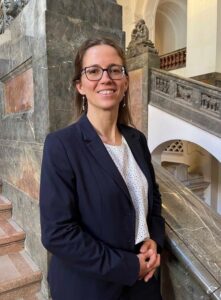 CONTACT PERSON ADDRESS   CONTACT PERSON ADDRESS   CONTACT PERSON ADDRESS  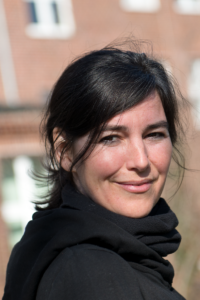 CONTACT PERSON ADDRESS   CONTACT PERSON ADDRESS 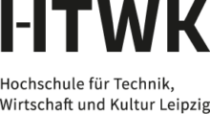  CONTACT PERSON ADDRESS  CONTACT PERSON ADDRESS 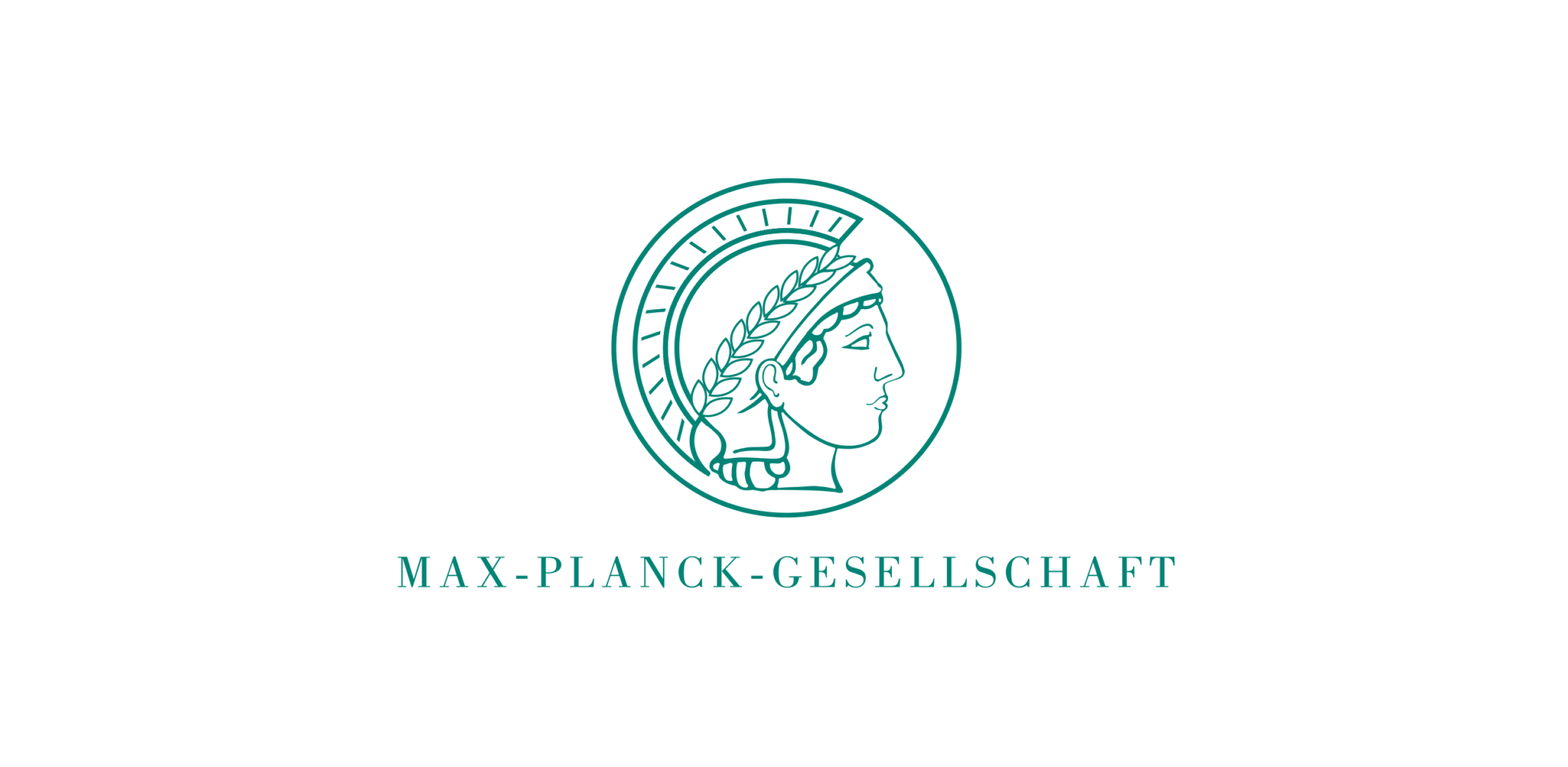 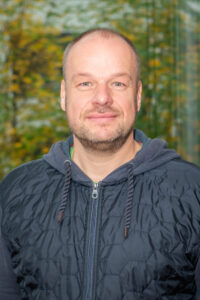 CONTACT PERSON ADDRESS   CONTACT PERSON ADDRESS   CONTACT PERSON ADDRESS | ||


